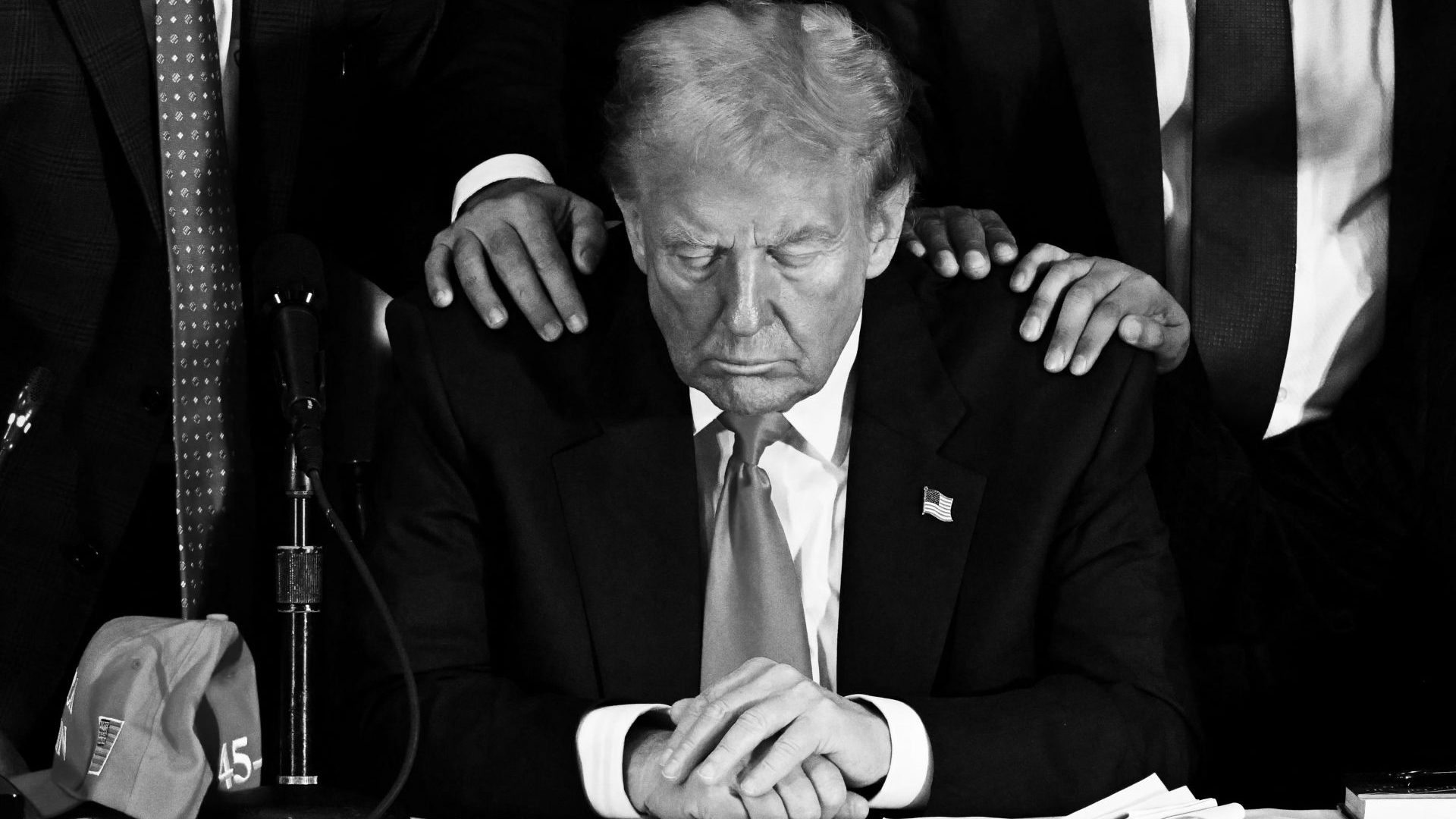Matthew d’Ancona’s article on the assassination of Charlie Kirk (TNW #453) captures something that should disturb us all: the transformation of grief into myth, and myth into political weaponry.
As I argued in my recent book The Politics of Rage, populist movements thrive on grievance, outrage and emotion far more than on policy detail. Kirk’s early death has provided Donald Trump and his circle with the most powerful fuel of all: a martyr.
The memorial in Arizona was less a civic occasion than a religious revival. References to St Stephen and a “spiritual reawakening” move the rhetoric well beyond politics into the language of crusade.
The danger is obvious: dissent is redefined as heresy, disagreement as blasphemy. A democracy cannot long survive if its opponents are cast not simply as rivals, but as enemies of God.
The lesson, which applies as much in Britain, is that politics is no longer fought only with manifestos, but with stories that give meaning, identity and a sense of cosmic struggle. If moderates cannot craft narratives of equal force – grounded in hope, justice and shared belonging – then they will always be fighting from behind, and they will lose.
Seán Hogan
Re: Sonia Sodha on Tommy Robinson’s path to power, via Nigel Farage (TNW #453). We must stop allowing the far right to set the political narrative and dominate the media.
It should be Labour’s priority to continually call out Farage’s lie, but it is the Lib Dems who seem to be doing it. If Labour could join them in a concerted effort to have an honest dialogue about immigration, if they could stop trying to out-Farage Farage and instead talk to the strong feelings against him that the moderate majority hold, the tide could still be turned.
There is nothing to be gained from moving ever further to the right. This is crunch time.
Liz Court
In TNW #453, Alastair Campbell sets out Keir Starmer’s virtues, but they are the virtues of a lawyer, not of a prime minister. Starmer had too little experience of politics before becoming leader of the Labour Party, and his actions since becoming PM demonstrate, sadly, that he does not possess the right qualities.
He seems to have no political vision, relying instead upon advisers who, no doubt, have their own objectives. If he does have any such vision, he lacks the ability to present it to the public and makes no attempt to do so. He seems to have become invisible to the media.
If this Labour government carries on as it has been doing, ignoring the public’s thirst for real change, it will be a one-term government, and some extreme right wing coalition will follow.
TD Wilson
Professor Emeritus, University of Sheffield
The only sure way for Keir Starmer to save us from the current negative direction of travel is modernisation of the voting system, so that all votes count.
Thinking outside the box would prevent us from living in a Trump-style state in a few short years, with no means of retrieval once there – as you can guarantee that any far right government would follow Trump’s example by demolishing the UK’s existing democratic checks and balances, neutering the courts and emasculating the press.
PR would allow the silent progressive majority in this country to rule in a coalition including the Lib Demss, Green and the Scottish and Welsh Nationalists. How much better to have that, than a desperate and dismal single term for Labour?
We can only hope that Starmer has the courage to do what Tony Blair should have done in 1997 and enact electoral reform. His name would then go down in history as the PM who changed UK democracy, rather than one who stood by and watched it vanish.
Robert Smith
Courtfield, Totnes
I read with great interest the article by Cindy Sui regarding the modern Macau (TNW #453). While resident in Hong Kong in 1982-3 I visited Macau on three occasions.
Macau was the only way to access mainland China from HK. I would imagine that witnessing three executions on a rural hillside is no longer included in the tour (I often wondered about the eventual fate of the tour guide). What interesting times they were.
Aubrey A Jones
Halesworth, Suffolk
I was surprised by the penultimate comment in Matthew d’Ancona’s review (TNW #453) of The Lady from the Sea, that “unlike Ibsen, Stone frames the play as a contest within Ellida rather than between men.” On the contrary, women’s internal conflict is characteristic of Ibsen’s greatest plays, notably Hedda Gabler and A Doll’s House, and that is one of the reasons why for so many of us Ibsen is such a great playwright.
This play concludes with Dr Wangel’s comment that women are free when they take responsibility for themselves.
Marcia Heinemann Saunders
London N10
I was delighted to read Jonn Elledge on the Shipping Forecast (TNW #453). For many of us landlubbers, the names of weather stations such as Malin Head hold a sense of mystery, and the forecasts and theme music are soothing and comforting.
Coincidentally, I’ve just finished reading Reports from Coastal Stations by Geoff Saunders. It’s a fascinating and lovely book where Saunders describes his journeys to the coastal stations and what he finds there. I found it, unexpectedly, to be gripping.
Dave Rogers
Caterham, Surrey
• The editor writes: Also highly recommended is our friend Charlie Connelly’s Attention All Shipping: A Journey Round the Shipping Forecast.
I am not used to full-page photographs of atrocities dropping through my letterbox (“Inside Trump’s Gulag”, TNW #452). The shocking photos of lines of apparently naked men, heads shaved, sitting so close together they would be unable to move, who have been transported to El Salvador without due process, are as disturbing as the absence of letters in response in TNW #453.
I urge TNW to request that the journalist, Thomas Graham, loses no time in following up with news about any hope for their fate. Does nobody care?
Ruth Taylor
London N1
Emily Herring’s essay on laughter vs vanity (TNW #452) confirmed why there is nothing mundane or soporific about revisiting the work of Frenchman Henri Bergson.
Until I read Herring’s biography of him, I had no idea of his “stupendous reputation” as the most famous philosopher in the world at the beginning of the 20th century.
In 1913 Bergson landed in New York and Broadway was blocked by a “fashionable crowd” heading to his lecture!
Ron Noon
BELOW THE LINE
Just who are the rich Nigel Warburton is talking about taxing in TNW #453? The super-rich have the ability to live anywhere and keep their money offshore. The rich in this country have an army of lawyers and accountants to keep taxes at bay.
Anywhere so-called “wealth” taxes have been tried, most notably in France recently, they have failed because the very rich just move. Any effective wealth tax would have to be Europe-wide to prevent people from just funnelling their wealth and income through the country with the lowest tax rate or none at all.
JOSEPH BAILEY
Re: Paul Mason on Aukus and defence (TNW #453). I read a piece in the FT suggesting that new developments in satellite sensing technology could soon make submarines visible to an enemy, even at great depth. High-speed autonomous drones that cost barely more than a torpedo, and which can patrol, in teams, for long periods, also present a serious threat to traditional sub-surface warfare.
It may be a good time to pause and think about where to spend billions on weaponry. This might be a paradigm-changing moment similar to the one in the 1930s when Nazi Germany chose to build battleships while Britain went with the new technology of aircraft carriers.
RSP ZATSEN




